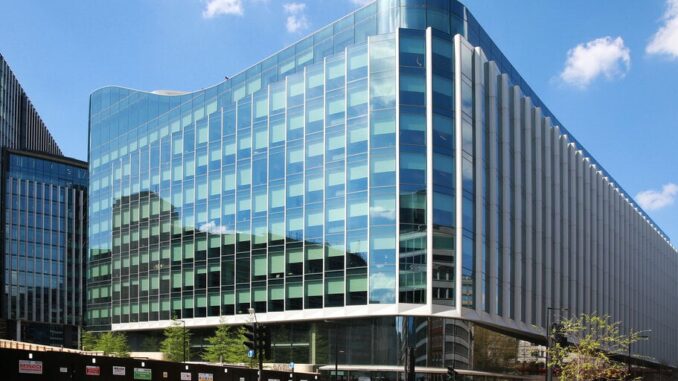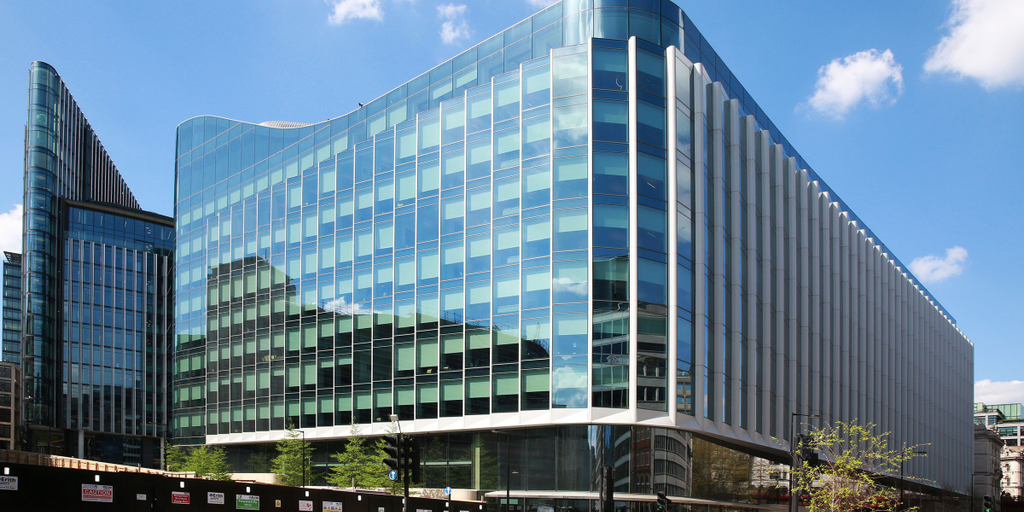
[ad_1]

Global investment in artificial intelligence could swell to $200 billion in less than two years, according to a new report by financial giant Goldman Sachs—growth that could boost the overall economy.
“Generative AI has enormous economic potential and could boost global labor productivity by more than 1 percentage point a year in the decade following widespread usage,” the report states.
By 2025, the report estimates, AI investment could account for up to 4% of U.S. GDP and 2.5% of GDP in other nations investing in the technology, like China. This rivals the 2% of GDP that defined past tech booms sparked by electricity and personal computers.
Goldman Sachs economists attribute this AI investment spurt to the enormous economic potential of generative AI, a subsector of AI that focuses on creating new content based on large language models. One example is ChatGPT, the viral chatbot sensation, and another is Stable Diffusion, a tool that generates original images out of text prompts.
Goldman Sachs previously estimated that generative AI could increase global labor productivity by more than 1 percentage point annually, once it’s been widely adopted. But there’s a caveat.
“For large-scale transformation to happen, businesses will need to make significant upfront investment in physical, digital, and human capital to acquire and implement new technologies and reshape business processes,” the report emphasized.
Goldman Sachs already tracks surging corporate interest in AI, with 16% of Russell 3000 companies mentioning AI on earnings calls, up from just 1% in 2016. The bank also puts America at the forefront of global AI innovation.
“The U.S., meanwhile, is positioned as the market leader in AI technology, and American companies will likely be relatively early adopters.”
Adding in proprietary projections, Goldman forecasts AI investment approaching $100 billion in the U.S. and $200 billion globally by 2025. “Despite extremely fast growth, the near-term GDP impact is likely modest given AI’s very low current share of GDP,” the report notes.
This influx of AI investment also has broader implications.
As Decrypt previously reported, a McKinsey report estimates that generative AI alone could pump $4.4 trillion into the global economy annually. This accounts for 15-40% of AI’s total projected economic impact of up to $15.7 trillion by 2030, according to PriceWaterhouseCoopers.
Investments are strategically targeted. Goldman Sachs Research points out that AI investments will mostly “come from hardware investment to train AI models and run AI queries, as well as increased spending on AI-enabled software.” And this seems to be the current status of the market. With Microsoft pouring billions into ChatGPT developers OpenAI and Google investing in competitors like Anthropic (developers of Claude AI), a lot of companies are racing to lead the AI pack—a competitive field that some analysts believe is unsustainable.
So far, the explosion of AI development has been a boon for the U.S., energizing markets. The stunning 16.6% return of the S&P 500 this year makes 2023 one of the best years for the index since the Great Depression.
Stocks continue one of their best years on record. With price-only S&P 500 data going back to 1927, this year ranks as the tenth best through July 31.
Only 1933, 1987, 1975, 1997, 1989, 1954, 1995, 1943, and 1955 posted better returns through the first seven months of the year.… pic.twitter.com/nane2H3W5Y
— Jim Bianco (@biancoresearch) August 1, 2023
As one sector heats up, however, another cools down. AI has drawn interest away from the once red-hot crypto space.
However, the rise of AI use in economic activities has come with its own sets of concerns, from privacy issues to worries about the possibility of AI algorithms replacing human jobs. But if current forecasts hold true, we’ve only just glimpsed the transformative economic power of AI.
Stay on top of crypto news, get daily updates in your inbox.
[ad_2]
Source link




